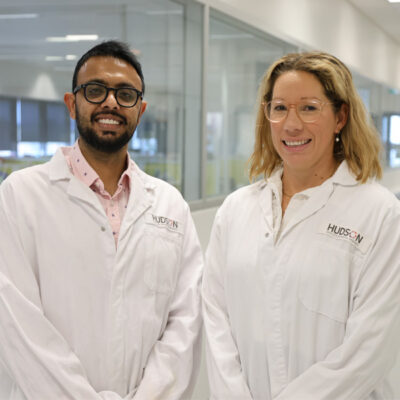Grant to improve understanding of UCB stem cell treatment
By Rob Clancy, staff writer
Dr Tayla Penny will receive a grant of more than $96,000 from the Cerebral Palsy Alliance to advance her work on improving understanding of umbilical cord blood (UCB) stem cell treatment for perinatal brain injury.
Every 20 hours, an Australian baby is born with a brain injury that underlies cerebral palsy. It is a permanent, life-long condition with no cure. Around 34,000 Australians have cerebral palsy.
Cerebral palsy is an umbrella term for a group of related but unique symptoms that encompass abnormal motor function or posture.
Hudson Institute is a leader in researching the use of UCB stem cell treatment for vulnerable newborns.

Optimising umbilical cord blood expansion as a potential therapy for perinatal brain injury.
Dr Tayla Penny
Stem cells derived from umbilical cord blood (UCB) can help reduce the perinatal brain injuries that often cause cerebral palsy (CP), but how these cells work, and in what situations they are appropriate as a therapeutic option for babies and children with CP, is less well understood.
This project will use in vitro assessments to delineate the mechanism of action of expanded UCB cells, as well as to optimise their neuroprotective capacities.
This research was supported by | Cerebral Palsy Alliance
About Hudson Institute
Hudson Institute’ s research programs deliver in three areas of medical need – inflammation, cancer, women’s and newborn health. More
Hudson News
Get the inside view on discoveries and patient stories
“Thank you Hudson Institute researchers. Your work brings such hope to all women with ovarian cancer knowing that potentially women in the future won't have to go through what we have!”







